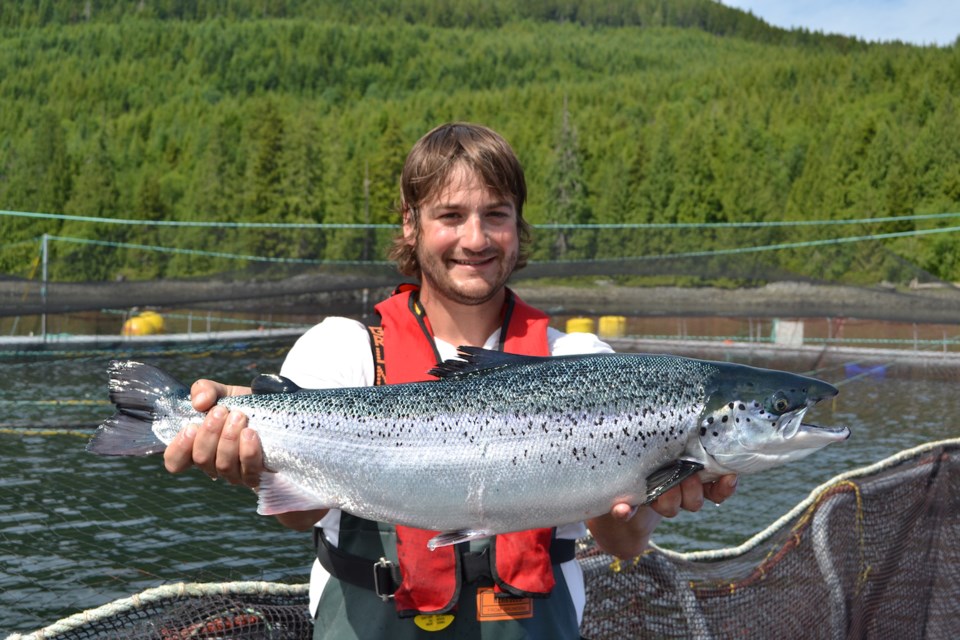The beginning of end of the salmon farming industry in B.C. as we know it will start in earnest in 2022 in the Discovery Islands.
A federal ban on open-net farms, announced December 10, means that the $1.6 billion industry will close for good, operators say, because open-pen it is the only viable business model.
B.C. salmon farmers say there is no business case for entirely land-based salmon farming, which the federal government is recommending the industry transition to.
By June 22, 2022 all 19 salmon farms in the Discovery Islands will have to be gone.
Federal Fisheries and Oceans Minister Bernadette Jordan announced by news release that the last licences are being renewed for 18 months, and after they expire no more licences will be issued.
By June 2022, the entire region must be free of open-net salmon farms.
Salmon farms are being forced out of the Discovery Islands due to opposition by First Nations there.
“The Government of Canada remains committed to sustainable, environmentally conscious aquaculture, but it must be developed collaboratively and include the voices of Indigenous peoples and all Canadians,” Jordan said in her news release. “Today’s decision was not easy.”
The Trudeau government confirmed its plan is to phase out open-net salmon farming in B.C. by 2025. There had been some confusion over that date.
Originally, a mandate letter from Prime Minister Justin Trudeau to then fisheries minister Jonathan Wilkinson suggested the phase-out would have to occur by 2025.
After Jordan became federal fisheries minister, she said that the mandate was to come up with a plan by 2025 to phase them out. But a government news release seems to confirm that 2025 is the date for a transition from open-net salmon farms to something else -- not the date to have a plan in place.
“The federal government will continue working collaboratively with partners on the responsible transition from open-net pen salmon farming in coastal British Columbia waters by 2025,” the federal government news release states.
By “transition” the federal government means a transition from open-net salmon farms to some other form of fish farming that is more contained -- land-based farms recirculating aquaculture systems (RAS), for example.
But B.C. salmon farmers say there is no business case for land-based salmon farming in B.C., so for all intents and purposes, "transition" actually means "end."
There is one small land-based salmon farm in B.C. – Kuterra – that was built largely with public subsidies and grants.
Commercial-scale land-based fish farms are high in both capital and operation costs, and more likely to be built close to their markets, a number of studies suggest.
“There’s two things you need,” Doug Blair, president of RAIS, which produced a study on fish farming economics, said in November.
“You need to be close to the market and you need to have access to huge amounts of fresh water. If governments truly are signaling that they want to move all net-pen salmon farming to land-based closed containment, it’s never going to happen in B.C.”
The BC Salmon Farmers Association appeared to be taken aback by the government announcement.
According to the Association, salmon farming is a $1.6 billion annual industry that employs 6,500 British Columbians, has participation agreements with 20 First Nations and generates $89 million each year in taxation for various levels of government
"This decision has significant implications and puts salmon farming in B.C. and across Canada at risk," the association said in a statement. "This comes at a bad time, during a pandemic when local food supply and good local jobs have never been more important."


